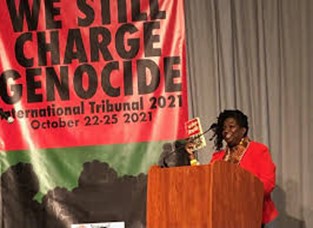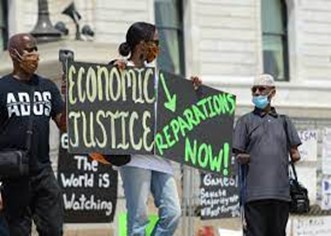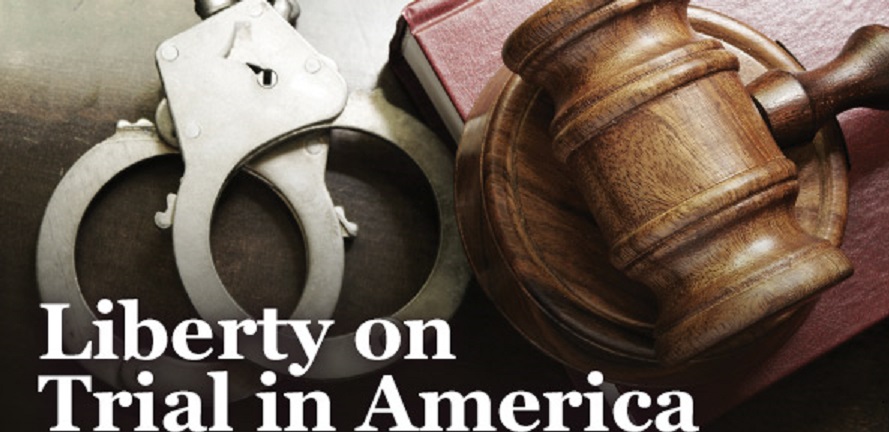Now We Execute Correction
by TiOnka Writez
The fight against systemic, academic, and institutional racism heavily affects Black, Brown, and Indigenous people worldwide. However, there is a beacon of hope. Thanks to the efforts of civil rights leaders, activists, participants, allies, and members of The International Tribunal on Human Rights Abuse organization. In October of 2021, the United States stood in defense of the following charges: (1) police killings, (2) mass incarceration, (3) political prisoners/ prisoners of war, (4) environmental racism, and (5) public health inequities against Black, Brown, and Indigenous people. The jurist of the three-day trial proceeding found the United States guilty of all charges.

Today, information is more easily accessible than ever before, creating greater exposure to malicious acts. Let us consider, for example, the poor treatment of women of color—a demographic which is consistently the most neglected group of individuals worldwide. For instance, Ms. Sarah Baartman; her brain, skeleton, and sexual organs were on exhibit in a Paris Museum from 1815 to 1974. Or the case of Ms. Henrietta Lacks. In 1951, medical professionals extracted cancerous cells from Ms. Lacks without her consent. Ms. Lacks posthumous service is why the healthcare industry is making history by generating the world’s first immortalized human cell line.
Also, we have Ms. Mary Turner, who, in 1918 at eight months pregnant, was lynched, and her fetus cut from her belly. Fast-forwarding to the present is the story of Sandra Bland. Ms. Bland met her end while in the custody of Waller County, TX., in 2015. Breonna Taylor was murdered by Louisville, Kentucky police in 2020. In that same year, more than 100,000 black women and girls went missing. Only hundreds of the cases received media coverage or resulted in a cheerful ending.
Police Killings
Cases such as Treyvon Martin, Eric Garner, Aubrey Taylor, and many others dominate the airwaves. Family members, friends, and even strangers are on the streets of their respective cities crying out for refuge and resources. Each case is a painful reminder of the current state of affairs for African Americans. Each story serves to remind everyone of the hazy overcast in the lives of the Black and Indigenous People of Color (BIPOC) community.
Related: Mass Incarceration in Louisiana

Remediation and Reparations
The United States can best prove good on its premise of unity and justice for all through actions. The primary agenda now is remediation ideas, reparations, and future activities, considering the “guilty” verdict. A thoughtful recommendation is to amend the US Constitution. Revising the constitution to acknowledge Black, Brown, and Indigenous people as “human” improves society. No longer can people treat BIPOC as undeserving of basic fundamental human rights. But changing the constitution is challenging. Especially in today’s political climate.
In the interim, a gesture of goodwill for the contributions of Black, Brown, and Indigenous people is a Presidential executive order. The people are worthy of an executive order promoting equity, justice, and opportunity.


[…] post The United States Found Guilty appeared first on Black Source […]